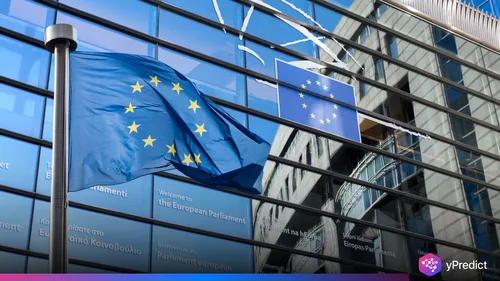
Europe is approaching a key inflection point regarding technological and economic leadership. If the rapid expansion of the AI revolution continues, countries that do not embrace innovations may lose influence in a global economy. The US and China have made progress in this area, while Europe is still working to catch up by developing AI-driven workforces that can independently perform complex work. The contacts made or missed will lay out the economic direction for the continent for the next several decades.
The European founders of companies like Venta AI, including Lucas Spreiter, are building virtual AI employees to perform difficult business functions and assist humans as virtual coworkers. These units are much more than chatbots; they represent intelligent systems that can make decisions, learn over time, and improve processes. For most European businesses, developing and deploying AI workforces is no longer a choice, but a tense must to stay competitive.
The challenge is not only technical; it is strategic. For the European policymakers and startups, a drive toward rapid innovation must be tempered by ethical standards, data privacy regulation and economic sustainability. The decisions made now will shape Europe’s sustainable position as a leader in AI on the global stage.
Why Europe Needs to Prioritize AI Workforce Innovation
AI innovation in the workforce gives Europe a new opportunity to enhance its economic and technological strength. By developing intelligent AI workers, companies can increase their productivity, save costs, and create new models of business. In particular, AI workers can work well with repetitive tasks or data-intensive tasks, freeing up human workers for creative work and strategic thinking.
AI startups across Europe have been leading the way by developing versions of that technology that rival its counterparts in Silicon Valley. However, limited funding, legal requirements, and underdeveloped talent make adoption difficult. This means Europe could face large portions of outsourced AI solutions, which would undermine local innovation and diminish intellectual property in Europe.
The Future of Work in Europe
Artificial intelligence employees are reshaping how work is performed. Unlike earlier systems for automation, these AI employees can learn, modify their behavior, and independently make decisions. Startups, such as Venta AI, are at the forefront of this movement, showing how AI employees can naturally coexist in teams.
Organizations that are using AI employees can grow quicker, minimize human error, and find perceptions and insights that might not have otherwise been possible. This shift does not diminish human talent, but improves the abilities of the worker. Workers do the high value activities and the AI employee runs the complex activities, creating a response overall.
Lessons from the US and China
The United States and China are at the forefront of innovation in workforce automation use and education in artificial intelligence. Significant investments in research and talent in AI from large tech firms in these economies have created elite AI workers highly competent at coming up with innovative solutions to complex comparison issues. In order to maintain its competitiveness, Europe must accelerate the pace of adoption.
By studying the AI workforce strategies in these two economies, European startups can determine what gaps exist, planners and evaluate what can be and ethical adoption in AI. It is related to educate workforce in AI profiecnecies, explore cross-border collaboration opportunities, and develop institutional frameworks that will facilitate AI training and a greater engagement in AI production role in the new information economy that ensure European ventures to not fall behind and have AI parties desirous of economic leadership..
Steps for Europe to Lead in AI
Europe must invest in AI startups to grow talent across industries. Governments and companies should form partnerships to boost research. Countries need to share skills and resources through cross-border collaboration. Leaders must also focus on ethical AI use to build public trust and set global standards.
Why Europe Must Act Now
Europe stands at a turning point. The choice is simple: innovate in AI or depend on others. Startups, policymakers, and businesses must act quickly. Strong action today will help Europe secure its place in the global AI race.






